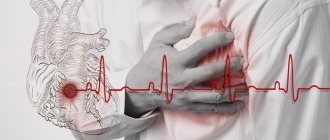Frequent outbursts of anger and excessive aggressiveness are seemingly normal phenomena in everyday life. On the other hand, increased irritability may be a signal of the development of a mental illness. Attacks of anger and tearfulness can occur either out of the blue or due to fatigue or stress. Irritability is a consequence of psychological and physiological problems. In most cases, increased nervousness does not interfere with normal life in society. However, if it interferes with work, career building, or normal family relationships, you should think about visiting a psychotherapist.
Treatment of irritability
The Salvation Clinic provides treatment for irritability using proven techniques and individual programs, as well as modern pharmacotherapy. We have good personnel and technical potential; we can reliably establish the reasons that caused inappropriate behavior. We are recommended for our professionalism and responsibility. Other reasons to contact us for help:
- the possibility of treatment both in a hospital and on an outpatient basis;
- affordable cost of services;
- courteous attitude towards the interests of patients;
- 24-hour psychological support;
- assistance with hospitalization.
Contacting our center is a chance to change your life for the better, to know yourself, to achieve harmonious coexistence with the outside world. With the support of experienced mentors, you can learn to control your behavior and eliminate factors that provoke behavioral disorder.
Treatment of aggression and irritability
Aggression appears as a result of interpersonal conflicts. A negative attitude towards another person can appear at the mere thought that he may wish harm, although in reality this may not be the case. Negative emotions can accumulate. In most cases, it is enough to give a person the opportunity to simply throw out the accumulated negativity. Sports activities are good for this.
There are certain psychotherapeutic techniques that allow you to achieve peace of mind in hot-tempered, irritable people. It is important that a person learns good manners, is able to show resistance to stress in conflict situations, and can calmly react to basic things.
Treatment of increased irritability (senile)
Treatment of aggression in older people should be accompanied by the use of drugs that have a sedative effect. Family psychotherapy, support of loved ones and appropriate care are of no small importance. The staff of our clinic will be able to provide the necessary care around the clock. We take a responsible approach to our work and do everything possible so that our patients do not need anything and are able to appreciate all the benefits of a “dignified” old age.
Treatment of severe irritability
Sleep is the most effective. After a good night's rest, you always feel a surge of strength and energy. During sleep, the body's energy resources are renewed and metabolism is normalized. If you are very irritable, you should stop smoking and drinking alcohol. They only create the illusion of eliminating the attack of anger. It seems to a person that when he smokes, he calms down. In fact, the problem is only getting worse. Smoking causes oxygen starvation of brain cells and other vital organs, which can subsequently cause depression. This is a dangerous mental disorder. In some cases, patients exhibit suicidal tendencies. The patient is deprived of the ability to “see” the world in bright colors and enjoy life. He is constantly negative.
The specialists of our clinic will help you get rid of addiction. Classic treatment methods are used (cognitive psychotherapy, behavioral approach), as well as such radical measures as hypnosis, when the doctor deliberately intrudes into the patient’s consciousness in order to change his behavior patterns and habits.
Adjusting your diet is also important. Food containing various chemical additives (dyes, preservatives) increases irritability. Preference should be given to natural products.
Treatment of severe irritability in women
Strong irritability is more common among representatives of this gender group. Women are more susceptible to self-criticism and strive to achieve perfection in everything; it is important for them to please others. During psychotherapeutic sessions, you can achieve a rethinking of life priorities and direct aspirations in a more useful direction. After eliminating the provoking factor, a significant improvement in the condition will be immediately noticeable.
Treatment and prevention of irritability
Treatment of irritability involves an integrated approach - the work of a psychologist, taking medications that eliminate pain symptoms and excitability, for example, SilvaDeprex. The recovery process can take several months or a longer period. A significant role in the treatment and prevention of irritability is played by taking herbal remedies that help cope with nervous and emotional tension and anxiety.
What does the doctor think?
“First of all, you need to develop the property of peacefulness. A person must understand that things don’t always work out the way he wants, and he needs to be prepared for this.”
Causes of irritability
Social provoking factors include deliberate incitement, propaganda of violence in the media, incitement of ethnic conflicts, racist calls, encouragement to carry weapons. The external environment can also provoke an attack of anger. A negative reaction occurs to:
- heat,
- cold,
- temperature difference,
- strong wind,
- noise,
- crowded public transport
- stuffiness,
- heavy smoke from cigarette smoke,
- unpleasant smell.
A person may also have a genetic predisposition to aggression. Irritability is provoked by various prejudices passed on from generation to generation.
Normotimics (normotimics, mood regulators)
Drugs in this group are most often used for long-term planned treatment of aggressiveness. The mechanism of action of these drugs is associated with restoring the balance between the processes of inhibition and excitation in the brain.
Prescribed for aggressiveness resulting from overwork, the consequences of organic damage to the nervous system (trauma, surgery, infection and intoxication), alcohol and drug abuse, epilepsy, affective disorders (depression, manic states, bipolar affective disorder) and other endogenous mental disorders.
The main drugs from the group of mood stabilizers:
- carbamazepine;
- lithium strength;
- valproic acid;
- lamotrigine.
Irritability and aggression in women
Drinking alcoholic beverages can lead to aggressive behavior. More terrible is female alcoholism. The patient loses his mind, can commit any immoral act, sober up and not even remember what happened. Addiction is characterized by complete degradation of personality. Increased irritability in women can also be triggered by a craving for drugs. In this case, all a person’s actions and thoughts come down to searching for the next dose. Fear of withdrawal drives immoral actions. Excessive aggressiveness may be caused by the drug.
What treatment is used?
Psychotherapy is offered to people suffering from neurosis.
The symptoms of neurosis affect daily life, which is greatly impaired. And as soon as the quality of life decreases, it is worth seeking the help of a psychotherapist. In a safe therapeutic space, the patient has the opportunity to express his feelings, dominant obsessive thoughts, which creates the opportunity to distance himself from internal conflict, become aware of its origins, and also to change beliefs, thinking and, therefore, also feelings.
Drug treatment also brings results, the inclusion of which is decided by a psychiatrist. According to doctors, patients often say after treatment: “I’m breathing again!” You should not ignore the symptoms of neurosis, because it worsens the quality of life.
Causes of increased irritability
Increased irritability can occur for a variety of reasons. Most often this is due to improper planning of your own time. Thus, with monotonous and monotonous work, the inability to properly rest or allocate time for this can lead to regular rush jobs, and, accordingly, chronic fatigue and increased irritability.
A person who is in such conditions increasingly experiences anxiety, weakness and sudden mood swings. He can be lethargic and apathetic, and the next moment he can be irritated over some little thing. His health worsens, he feels hot and cold. Sometimes the cause of increased irritability can be an unstable psyche. They get irritated even when a small difficulty arises. If the trouble is more serious, then they simply lose their temper.
Symptoms
Irritability and aggression manifest themselves in the form of somatic and mental symptoms.
The first consists of pain, dizziness, disorders of the digestive system, disorders of sexual desire and other physical abnormalities. Mental symptoms manifest themselves in emotional stress - anxiety and irritability for no reason, isolation, fixation on problems, phobias, photophobia, increased sensitivity to temperature changes, inferiority complex and others.
Causes of severe irritability
Severe irritability can occur for the following reasons:
- Increased activity of the thyroid gland. It causes increased production of a hormone that affects many body functions, including brain function.
- High concentration of cholesterol. More precisely, it is not the cholesterol itself that is to blame, but the drugs taken to reduce its level.
- Diabetes. Low sugar levels lead to metabolic imbalance and frequent outbursts of anger.
- Depression. Constantly being in a bad mood cannot but affect the reaction to certain events.
- Suffered a stroke. This phenomenon is not unique, because a stroke leads to the death of brain cells. If the frontal lobe, which is responsible for controlling emotions, is damaged, then a person can very easily lose control in almost any situation.
Contact us, don’t be left alone with the problem, we will help you understand yourself and improve your life!
Mood swings and sleep disturbances
Anger that cannot find a way out and constant internal anxiety often become causes of insomnia. Thoughts spin “like a squirrel in a wheel,” making it difficult to relax and fall asleep. Sleep disturbances increase nervous and physical exhaustion, causing increased irritability and tearfulness.
In such a situation, many resort to sleeping pills and sedatives. Unfortunately, only a small list of modern drugs is relatively safe for health, and not a single sleeping pill can solve the problem at the root.
Sleep disorder specialists are well aware of:
- Depression is to blame for 20-25% of all insomnia;
- in 10-15% of cases, insomnia is caused by anxiety disorders;
- in another 5-10%, sleep disturbances are caused by alcohol, drugs or medications;
- in some cases, insomnia is a symptom of schizophrenia and schizoaffective disorders.
Thus, in almost half of all cases of insomnia, patients require the help of a psychiatrist, psychotherapist or psychologist. That is why, at the Rehabilitation Clinic in Khamovniki, in the sleep medicine department, consultations are conducted by specialists in the field of somnology, who use cognitive behavioral therapy techniques in the treatment of sleep disorders.
Neuroleptics (neuroleptics, antipsychotics)
Neuroleptic drugs are used both for a single (one-time) dose to relieve an attack of aggressiveness, and for continuous long-term use.
Neuroleptics exert their effect by restoring the impaired exchange of neurotransmitters in the nervous system, enhancing inhibition processes in the cortex and subcortical structures of the brain.
Neuroleptics are used to treat almost all types of psychoses and neuroses accompanied by aggressive behavior. They are the most powerful anti-aggressive agents. There are many antipsychotic drugs; by now they are divided into several generations.
The main drugs are antipsychotics used for aggressiveness:
- periciazine (neuleptil);
- thioridazine (Sonapax);
- chlorprothixene;
- zuclopenthixol;
- chlorpromazine;
- levomepromazine;
- clozapine.










